-
1 EXECUTIVE SUMMARY
-
Market Attractiveness Analysis
- Greek Yoghurt Market, by Flavor
- Greek Yoghurt Market, by Category
- Greek Yoghurt Market, by Distribution Channel
- Greek Yoghurt Market, by Region
-
MARKET INTRODUCTION
-
Definition
-
Scope of the Study
-
Market Structure
-
Key Buying Criteria
-
Macro Factor Indicator Analysis
-
RESEARCH METHODOLOGY
-
Research Process
-
Primary Research
-
Secondary Research
-
Market Size Estimation
-
Forecast Model
-
List of Assumptions
-
MARKET DYNAMICS
-
Introduction
-
Drivers
-
Restraints
-
Opportunities
-
Challenges
-
MARKET FACTOR ANALYSIS
-
Value Chain Analysis
-
Supply Chain Analysis
-
Porter’s Five Forces Model
- Bargaining Power of Suppliers
- Bargaining Power of Buyers
- Threat of New Entrants
- Threat of Substitutes
- Intensity of Rivalry
-
Greek Yoghurt Market, BY FLAVOR
-
Introduction
-
Unflavored
- Unflavored: Market Estimates & Greek Yoghurt Market, by Region/Country, 2024-2032
-
Vanilla
- Vanilla: Market Estimates & Greek Yoghurt Market, by Region/Country, 2024-2032
-
Strawberry
- Strawberry: Market Estimates & Greek Yoghurt Market, by Region/Country, 2024-2032
-
Blueberry
- Blueberry: Market Estimates & Greek Yoghurt Market, by Region/Country, 2024-2032
-
Raspberry
- Raspberry: Market Estimates & Greek Yoghurt Market, by Region/Country, 2024-2032
-
Blends
- Blends: Market Estimates & Greek Yoghurt Market, by Region/Country, 2024-2032
-
Others
- Others: Market Estimates & Greek Yoghurt Market, by Region/Country, 2024-2032
-
Greek Yoghurt Market, BY CATEGORY
-
Introduction
-
Organic
- Organic: Market Estimates & Greek Yoghurt Market, by Region/Country, 2024-2032
-
Conventional
- Conventional: Market Estimates & Greek Yoghurt Market, by Region/Country, 2024-2032
-
Greek Yoghurt Market, BY DISTRIBUTION CHANNEL
-
Introduction
-
Store based
- Store based: Market Estimates & Greek Yoghurt Market, by Region/Country, 2024-2032
- Supermarkets & Hypermarkets
- Convenience Stores
- Others
-
Non-store based
- Non-store based: Market Estimates & Greek Yoghurt Market, by Region/Country, 2024-2032
-
Greek Yoghurt Market, BY REGION
-
Introduction
-
North America
- Market Estimates & Greek Yoghurt Market, by Flavor, 2024-2032
- Market Estimates & Greek Yoghurt Market, by Category, 2024-2032
- Market Estimates & Greek Yoghurt Market, by Distribution Channel, 2024-2032
- Market Estimates & Greek Yoghurt Market, by Country, 2024-2032
- US
- Canada
- Mexico
-
Europe
- Market Estimates & Greek Yoghurt Market, by Flavor, 2024-2032
- Market Estimates & Greek Yoghurt Market, by Category, 2024-2032
- Market Estimates & Greek Yoghurt Market, by Distribution Channel, 2024-2032
- Market Estimates & Greek Yoghurt Market, by Country, 2024-2032
- Germany
- UK
- France
- Spain
- Italy
- Rest of Europe
-
Asia-Pacific
- Market Estimates & Greek Yoghurt Market, by Flavor, 2024-2032
- Market Estimates & Greek Yoghurt Market, by Category, 2024-2032
- Market Estimates & Greek Yoghurt Market, by Distribution Channel, 2024-2032
- Market Estimates & Greek Yoghurt Market, by Country, 2024-2032
- China
- Japan
- India
- Australia & New Zealand
- Rest of Asia-Pacific
-
Rest of the World
- Market Estimates & Greek Yoghurt Market, by Flavor, 2024-2032
- Market Estimates & Greek Yoghurt Market, by Category, 2024-2032
- Market Estimates & Greek Yoghurt Market, by Distribution Channel, 2024-2032
- Market Estimates & Greek Yoghurt Market, by Region, 2024-2032
- South America
- Middle East
- Africa
-
COMPETITIVE LANDSCAPE
-
Introduction
-
Competitive Benchmarking
-
Development Share Analysis
-
Key Developments & Growth Strategies
-
COMPANY PROFILES
-
Chobani LLC
- Company Overview
- Financial Overview
- Products Offered
- Key Developments
- SWOT Analysis
- Key Strategies
-
Danone S.A.
- Company Overview
- Financial Overview
- Products Offered
- Key Developments
- SWOT Analysis
- Key Strategies
-
Nestlé S.A.
- Company Overview
- Financial Overview
- Products Offered
- Key Developments
- SWOT Analysis
- Key Strategies
-
Stonyfield Farm, Inc
- Company Overview
- Financial Overview
- Products Offered
- Key Developments
- SWOT Analysis
- Key Strategies
-
FAGE USA Dairy Industry Inc.
- Company Overview
- Financial Overview
- Products Offered
- Key Developments
- SWOT Analysis
- Key Strategies
-
General Mills, Inc.
- Company Overview
- Financial Overview
- Products Offered
- Key Developments
- SWOT Analysis
- Key Strategies
-
Byrne Hallow Farm
- Company Overview
- Financial Overview
- Products Offered
- Key Developments
- SWOT Analysis
- Key Strategies
-
Jalna Dairy Foods Pty Ltd.
- Company Overview
- Financial Overview
- Products Offered
- Key Developments
- SWOT Analysis
- Key Strategies
-
Erhmann AG
- Company Overview
- Financial Overview
- Products Offered
- Key Developments
- SWOT Analysis
- Key Strategies
-
Sun Valley Dairy
- Company Overview
- Financial Overview
- Products Offered
- Key Developments
- SWOT Analysis
- Key Strategies
-
APPENDIX
-
General Sources &References
-
List of Abbreviation
-
-
LIST OF TABLES
-
Greek Yoghurt Market, by Region, 2024-2032 (USD Million)
-
Greek Yoghurt Market, by Flavor, 2024-2032 (USD Million)
-
Greek Yoghurt Market, by Category, 2024-2032 (USD Million)
-
Greek Yoghurt Market, by Distribution Channel, 2024-2032 (USD Million)
-
North America: Greek Yoghurt Market, by Country, 2024-2032 (USD Million)
-
North America: Greek Yoghurt Market, by Flavor, 2024-2032 (USD Million)
-
North America: Greek Yoghurt Market, by Category, 2024-2032 (USD Million)
-
North America: Greek Yoghurt Market, by Distribution Channel, 2024-2032 (USD Million)
-
US: Greek Yoghurt Market, by Flavor, 2024-2032 (USD Million)
-
US: Greek Yoghurt Market, by Category, 2024-2032 (USD Million)
-
US: Greek Yoghurt Market, by Distribution Channel, 2024-2032 (USD Million)
-
Canada: Greek Yoghurt Market, by Flavor, 2024-2032 (USD Million)
-
Canada: Greek Yoghurt Market, by Category, 2024-2032 (USD Million)
-
Canada: Greek Yoghurt Market, by Distribution Channel, 2024-2032 (USD Million)
-
Mexico: Greek Yoghurt Market, by Flavor, 2024-2032 (USD Million)
-
Mexico: Greek Yoghurt Market, by Category, 2024-2032 (USD Million)
-
Mexico: Greek Yoghurt Market, by Distribution Channel, 2024-2032 (USD Million)
-
Europe: Greek Yoghurt Market, by Country, 2024-2032 (USD Million)
-
Europe: Greek Yoghurt Market, by Flavor, 2024-2032 (USD Million)
-
Europe: Greek Yoghurt Market, by Category, 2024-2032 (USD Million)
-
Europe: Greek Yoghurt Market, by Distribution Channel, 2024-2032 (USD Million)
-
Germany: Greek Yoghurt Market, by Flavor, 2024-2032 (USD Million)
-
Germany: Greek Yoghurt Market, by Category, 2024-2032 (USD Million)
-
Germany: Greek Yoghurt Market, by Distribution Channel, 2024-2032 (USD Million)
-
France: Greek Yoghurt Market, by Flavor, 2024-2032 (USD Million)
-
France: Greek Yoghurt Market, by Category, 2024-2032 (USD Million)
-
France: Greek Yoghurt Market, by Distribution Channel, 2024-2032 (USD Million)
-
Italy: Greek Yoghurt Market, by Flavor, 2024-2032 (USD Million)
-
Italy: Greek Yoghurt Market, by Category, 2024-2032 (USD Million)
-
Italy: Greek Yoghurt Market, by Distribution Channel, 2024-2032 (USD Million)
-
Spain: Greek Yoghurt Market, by Flavor, 2024-2032 (USD Million)
-
Spain: Greek Yoghurt Market, by Category, 2024-2032 (USD Million)
-
Spain: Greek Yoghurt Market, by Distribution Channel, 2024-2032 (USD Million)
-
UK: Greek Yoghurt Market, by Flavor, 2024-2032 (USD Million)
-
UK: Greek Yoghurt Market, by Category, 2024-2032 (USD Million)
-
UK: Greek Yoghurt Market, by Distribution Channel, 2024-2032 (USD Million)
-
Rest of Europe: Greek Yoghurt Market, by Flavor, 2024-2032 (USD Million)
-
Rest of Europe: Greek Yoghurt Market, by Category, 2024-2032 (USD Million)
-
Rest of Europe: Greek Yoghurt Market, by Distribution Channel, 2024-2032 (USD Million)
-
Asia-Pacific: Greek Yoghurt Market, by Country, 2024-2032 (USD Million)
-
Asia-Pacific: Greek Yoghurt Market, by Flavor, 2024-2032 (USD Million)
-
Asia-Pacific: Greek Yoghurt Market, by Category, 2024-2032 (USD Million)
-
Asia-Pacific: Greek Yoghurt Market, by Distribution Channel, 2024-2032 (USD Million)
-
China: Greek Yoghurt Market, by Flavor, 2024-2032 (USD Million)
-
China: Greek Yoghurt Market, by Category, 2024-2032 (USD Million)
-
China: Greek Yoghurt Market, by Distribution Channel, 2024-2032 (USD Million)
-
India: Greek Yoghurt Market, by Flavor, 2024-2032 (USD Million)
-
India: Greek Yoghurt Market, by Category, 2024-2032 (USD Million)
-
India: Greek Yoghurt Market, by Distribution Channel, 2024-2032 (USD Million)
-
Japan: Greek Yoghurt Market, by Flavor, 2024-2032 (USD Million)
-
Japan: Greek Yoghurt Market, by Category, 2024-2032 (USD Million)
-
Japan: Greek Yoghurt Market, by Distribution Channel, 2024-2032 (USD Million)
-
Rest of Asia-Pacific: Greek Yoghurt Market, by Flavor, 2024-2032 (USD Million)
-
Rest of Asia-Pacific: Greek Yoghurt Market, by Category, 2024-2032 (USD Million)
-
Rest of Asia-Pacific: Greek Yoghurt Market, by Distribution Channel, 2024-2032 (USD Million)
-
Rest of the World (RoW): Greek Yoghurt Market, by Country, 2024-2032 (USD Million)
-
Rest of the World (RoW): Greek Yoghurt Market, by Flavor, 2024-2032 (USD Million)
-
Rest of the World (RoW): Greek Yoghurt Market, by Category, 2024-2032 (USD Million)
-
Rest of the World (RoW): Greek Yoghurt Market, by Distribution Channel, 2024-2032 (USD Million)
-
South America: Greek Yoghurt Market, by Flavor, 2024-2032 (USD Million)
-
South America: Greek Yoghurt Market, by Category, 2024-2032 (USD Million)
-
South America: Greek Yoghurt Market, by Distribution Channel, 2024-2032 (USD Million)
-
Middle East: Greek Yoghurt Market, by Flavor, 2024-2032 (USD Million)
-
Middle East: Greek Yoghurt Market, by Category, 2024-2032 (USD Million)
-
Middle East: Greek Yoghurt Market, by Distribution Channel, 2024-2032 (USD Million)
-
Africa: Greek Yoghurt Market, by Flavor, 2024-2032 (USD Million)
-
Africa: Greek Yoghurt Market, by Category, 2024-2032 (USD Million)
-
Africa: Greek Yoghurt Market, by Distribution Channel, 2024-2032 (USD Million)
-
-
LIST OF FIGURES
-
Global Greek Yogurt Market Segmentation
-
Forecast Research Methodology
-
Five Forces Analysis of the Global Greek Yogurt Market
-
Value Chain of the Global Greek Yogurt Market
-
Greek Yoghurt Market, by Country (%)
-
Greek Yoghurt Market, by Region, 2024-2032,
-
Greek Yoghurt Market, by Flavor, 2023
-
Greek Yoghurt Market, by Flavor, 2024-2032 (%)
-
Greek Yoghurt Market, by Category, 2023
-
Greek Yoghurt Market, by Category, 2024-2032 (%)
-
Greek Yoghurt Market, by Distribution Channel, 2023
-
Greek Yoghurt Market, by Distribution Channel, 2024-2032 (%)


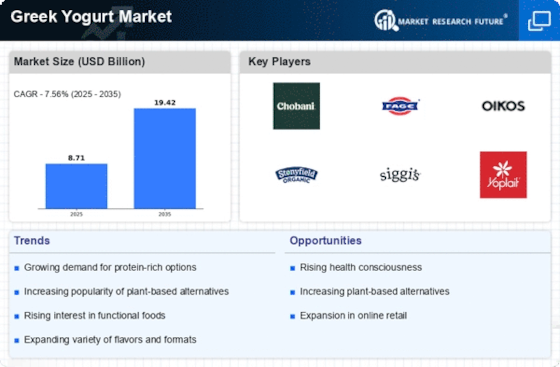
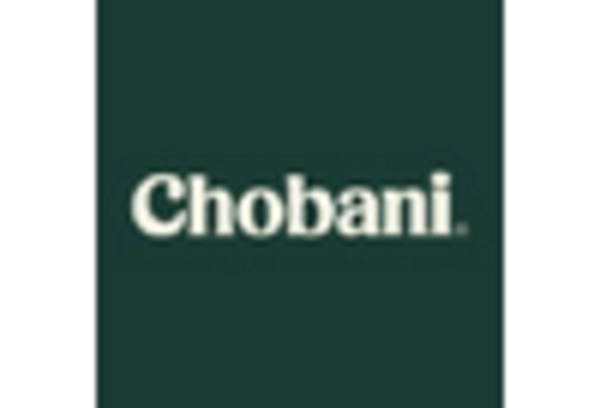
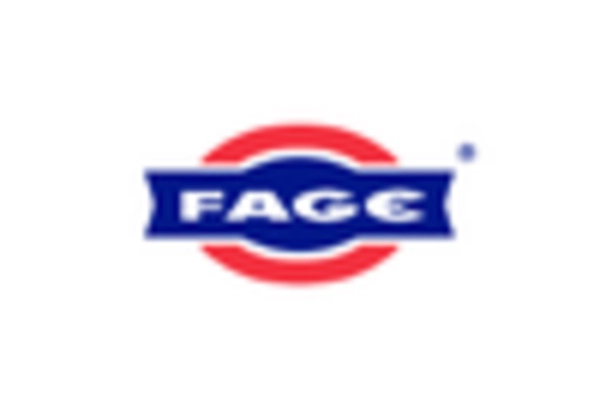
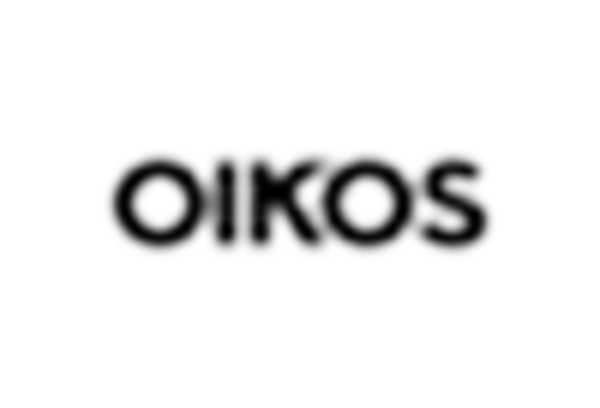
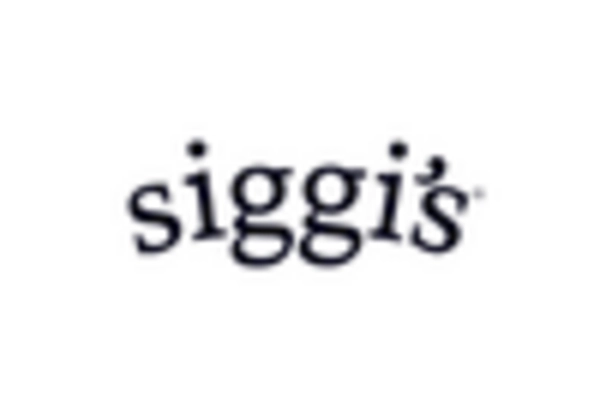
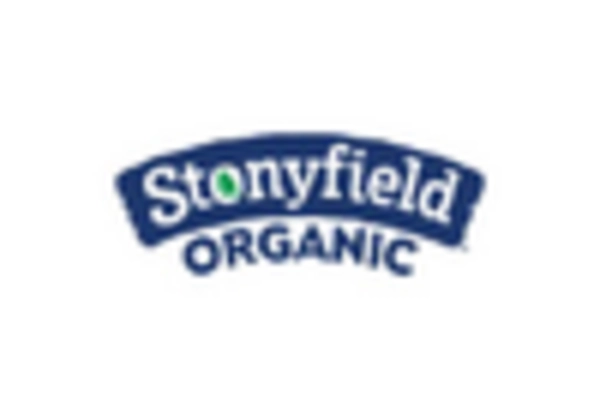
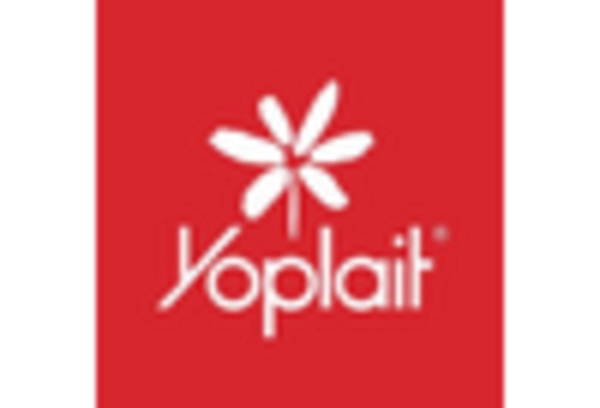









Leave a Comment